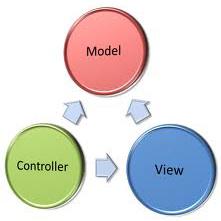Multi-view clustering (MvC) aims at exploring the category structure among multi-view data without label supervision. Multiple views provide more information than single views and thus existing MvC methods can achieve satisfactory performance. However, their performance might seriously degenerate when the views are noisy in practical scenarios. In this paper, we first formally investigate the drawback of noisy views and then propose a theoretically grounded deep MvC method (namely MvCAN) to address this issue. Specifically, we propose a novel MvC objective that enables un-shared parameters and inconsistent clustering predictions across multiple views to reduce the side effects of noisy views. Furthermore, a non-parametric iterative process is designed to generate a robust learning target for mining multiple views' useful information. Theoretical analysis reveals that MvCAN works by achieving the multi-view consistency, complementarity, and noise robustness. Finally, experiments on public datasets demonstrate that MvCAN outperforms state-of-the-art methods and is robust against the existence of noisy views.
翻译:多视角聚类(MvC)旨在在无标签监督的情况下探索多视角数据中的类别结构。多个视角提供了比单个视角更多的信息,因此现有的MvC方法可以实现令人满意的性能。然而,在实际场景中,当视角存在噪声时,它们的性能可能会严重退化。在本文中,我们首先正式调查了噪声视角的缺点,然后提出了一种具有理论基础的深度MvC方法(即MvCAN)来解决这个问题。具体而言,我们提出了一种新颖的MvC目标,使多个视角之间的不共享参数和不一致的聚类预测减少噪声视角的副作用。此外,我们设计了非参数迭代过程,生成用于挖掘多个视角的有用信息的强大学习目标。理论分析揭示了MvCAN通过实现多视角一致性、互补性和噪声稳健性来工作。最后,在公共数据集上的实验证明,MvCAN优于最先进的方法,并且对噪声视角的存在具有鲁棒性。


